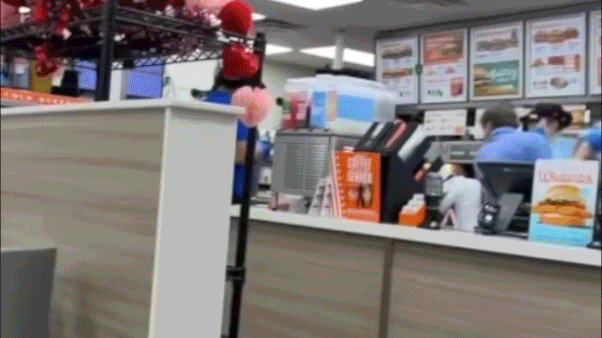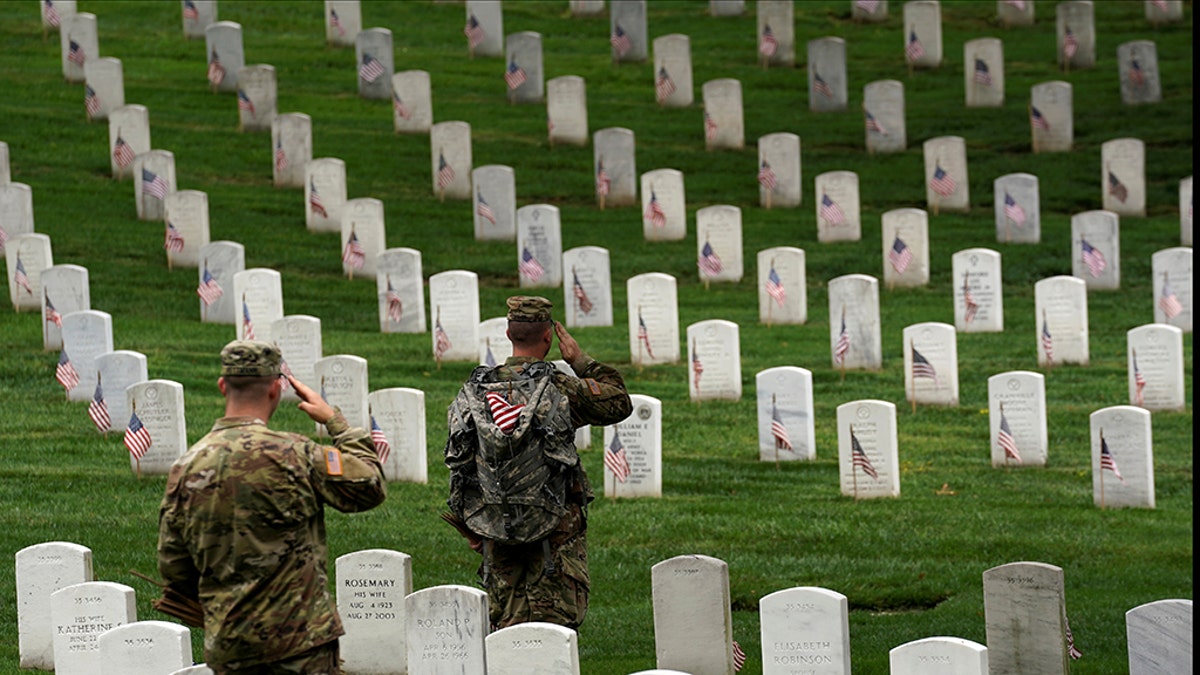
Arlington National Cemetery was established during the Civil War in 1864. (Reuters)
The suicide rate among vets has not improved and remains a deeply disturbing problem, despite work by the VA and others, according to a VA analysis and statistics obtained by Fox News.
Last week, the VA released findings from a years-long investigation into veteran suicide data from 2005-2015 in all 50 states and the District of Columbia. The findings are clear: the suicide rate is constant.
Veterans are more than twice as likely to die by suicide as non-veterans, according to the VA report. Additionally, VA researchers found the number of vets who take their own lives each day “remained unchanged at 20.” And even more-recent data obtained by Fox News suggests things may not be much better in 2018.
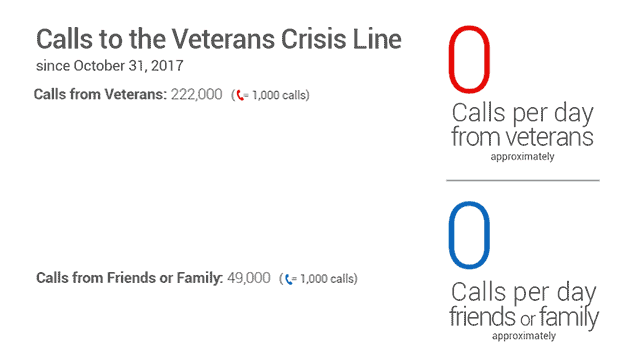
In June 2018, the VA told Fox News that in less than one year, the Veterans Crisis Line had fielded approximately 222,000 calls from veterans who are having thoughts of suicide. That is in addition to the 49,000 calls from family members or friends who are concerned about a veteran who is considering suicide.
Even for the mother of a U.S. Marine who took his own life after battling PTSD, and who has since dedicated her own to preventing veteran suicides, the numbers are stunning.
“I had no idea it was that bad,” said Janine Lutz. “That’s really lighting a fire under my butt to work harder."
The Veterans Crisis Line provides 24/7 support to veterans in distress, as well as concerned friends and family members. Staffers are available by phone at 800-273-8255 (Press 1), online at VeteransCrisisLine.net/Chat, and via text at 838255.
The volume of phone calls the Crisis Line receives is staggering. The VA told Fox News that since October 31, 2017, the Veterans Crisis Line has fielded approximately 222,000 calls from veterans who are having thoughts of suicide. That is in addition to the 49,000 calls from family members or friends who are concerned about a veteran who is considering suicide.
That breaks down to nearly 950 calls from veterans (or nearly 40 calls per hour) every day since Halloween, and more than 200 calls a day from friends and family.
"The mother of all battalions"
Lutz, who lives in Florida, is affectionately referred to by many in the veterans' community as “the mother of all battalions” for her efforts to bring veterans of all stripes together, and prevent more veteran suicides, via the LCpl Janos V Lutz Live To Tell Foundation.
Lutz started Live To Tell to honor the memory of her son “Jonny,” a Marine who took his own life while under the influence of a cabinet’s worth of medication for his PTSD. Since then, she has sued the government for her son’s death, eventually winning a settlement out of court, but her work didn’t stop there.
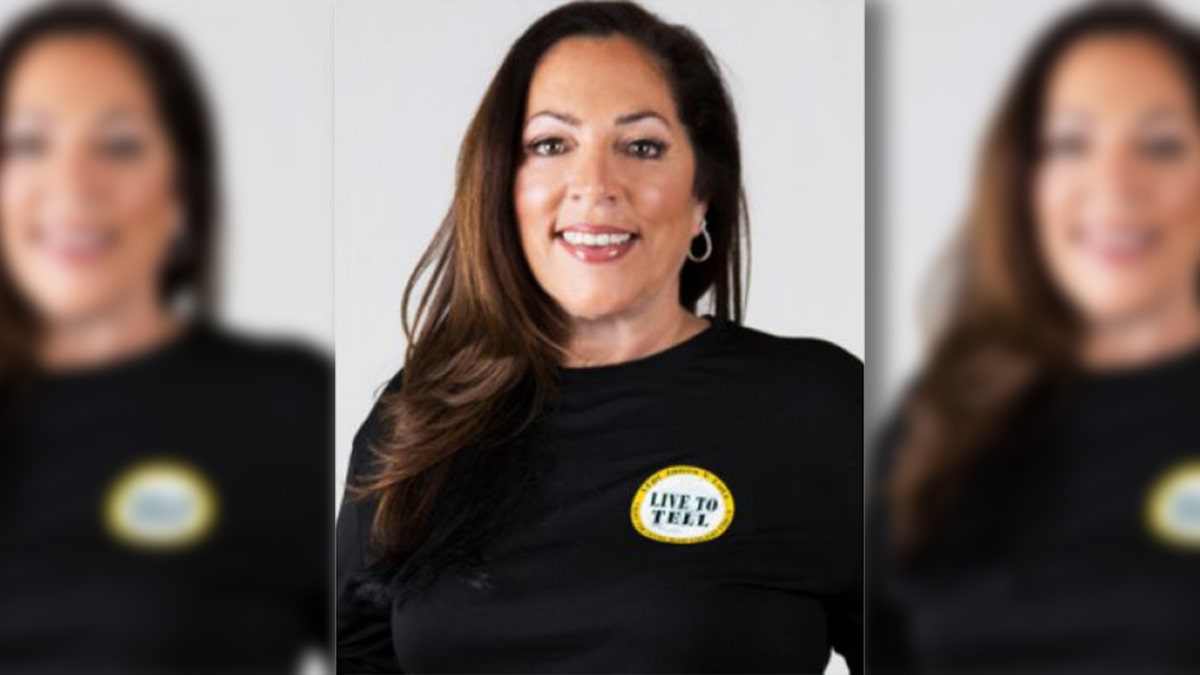
Janine Lutz (Live to Tell Foundation)
“About five months after [Jonny’s] death, I woke up one day and I was mad,” Lutz told Fox News. “I was mad knowing that my son wasn't the first to die like this. And I said why didn't somebody tell me… why aren't we doing more as a community? And it was then I decided that I was gonna be the voice, and fight for those who fought for us.”
It was only a year after her son’s death that Lutz made her first foray into advocacy, organizing a motorcycle rally that brought out an unexpectedly large number of people from across the country. She was excited about the hundreds of supporters who turned out, but unsure of what to do next.
That was until Lutz’s niece played a song for her that she says “grabbed me by the chest,” and inspired a plan to save the lives of Veterans across the country:
Buddy Up
“It’s time to buddy up ‘cause yup, this is wrong.
Surviving battle, but die when we’re home.
Yeah it hurts, that’s why I made this song.
It’s time to see the signs, like the lights when it’s on.”
Those lyrics are from the song “Red Flags” by Soldier Hard, an artist whose real name is Jeff Barillaro and who also happens to be an Army combat veteran. Barillaro dedicated himself to creating music that gives a voice to veterans, and the issues they experience along with their friends and families. When Lutz heard the lyrics to his song, she says she knew immediately what she had to do.
“He said ‘you all need to buddy up’… and he was talking to the veterans out there,” Lutz says. “When I heard that, I said that's it. I'm gonna get these guys together, build local communities, facilitate – I don’t know how, but that’s what I’m gonna do.”
Using Soldier Hard’s song as inspiration, Lutz has since established two “Lutz Buddy Up” social clubs, one in Florida and one in Massachusetts, and this summer she’s touring the country in the hopes of establishing even more. The concept is simple: bringing veterans together (and even first responders) so they can support one another while sharing a meal, playing a game or two, or just chatting.
“We welcome our veterans just as they are, wherever they are,” Lutz says. “Whatever mindset they're in, we welcome them. All we want to do is connect them with their peers, and it's just been a great success. Dozens and dozens of success stories.”
Lutz says membership has skyrocketed from just a handful back in 2014, to well over 500 in 2018 – including veterans from every U.S. armed conflict since the Korean War.
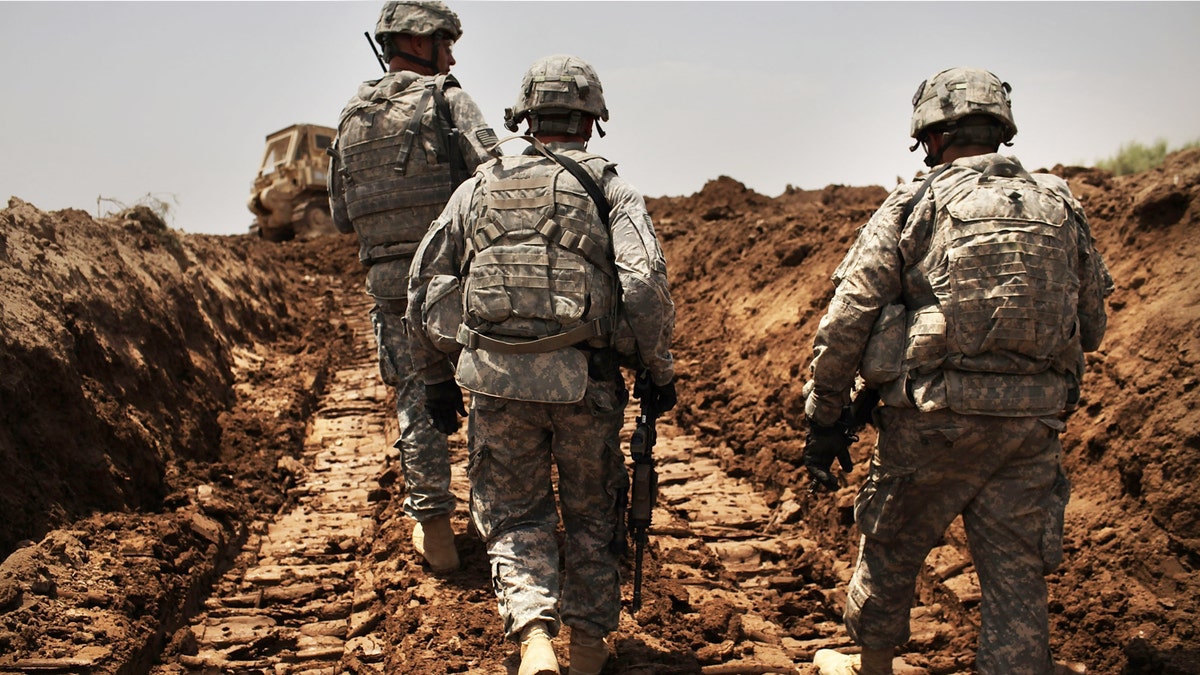
ISKANDARIYA, IRAQ - JULY 19: U.S. soldiers with the 3rd Armored Cavalry Regiment patrol a new ditch they have dug to protect the base from attack on July 19, 2011 in Iskandariya, Babil Province Iraq. As the deadline for the departure of the remaining American forces in Iraq approaches, Iraqi politicians have agreed to meet in two weeks time in order to give a final decision about extending the U.S. troops' presence beyond the end of the 2011 deadline. Violence against foreign troops has recently picked-up with June being the worst month in combat-related deaths for the military in Iraq in more than two years. Currently about 46,000 U.S. soldiers remain in Iraq. (Photo by Spencer Platt/Getty Images) (2011 Getty Images)
Asked what she would tell veterans who might be suffering in silence, or friends and family who might be concerned about a veteran they know, Lutz says to remember that connecting with peers is the key.
“They need to speak to their peers, someone who has walked in their shoes,” Lutz says, before pointing out that this is the exact philosophy soldiers employ on the battlefield.
“That's what they fight for, to keep the guy next to them alive… Yeah, they have a mission, but the biggest part is making sure the guy right next to you is alive and well,” Lutz says. “You're watching each other, and that’s what they have to continue when they get home…
“So if you don’t have any local buddies you know, find some in your community because they're everywhere, and they're looking for help too,” Lutz says. “Reach out to other veterans in your communities because that is your best medicine - your peer who has walked in your shoes.”
If you are a Veteran in crisis or having thoughts of suicide, or if you are someone who knows a Veteran in crisis, call the Veterans Crisis Line for confidential support 24 hours a day, seven days a week, 365 days a year at 800-273-8255 and press 1. You can also chat online at VeteransCrisisLine.net/Chat, or send a text message to 838255.










